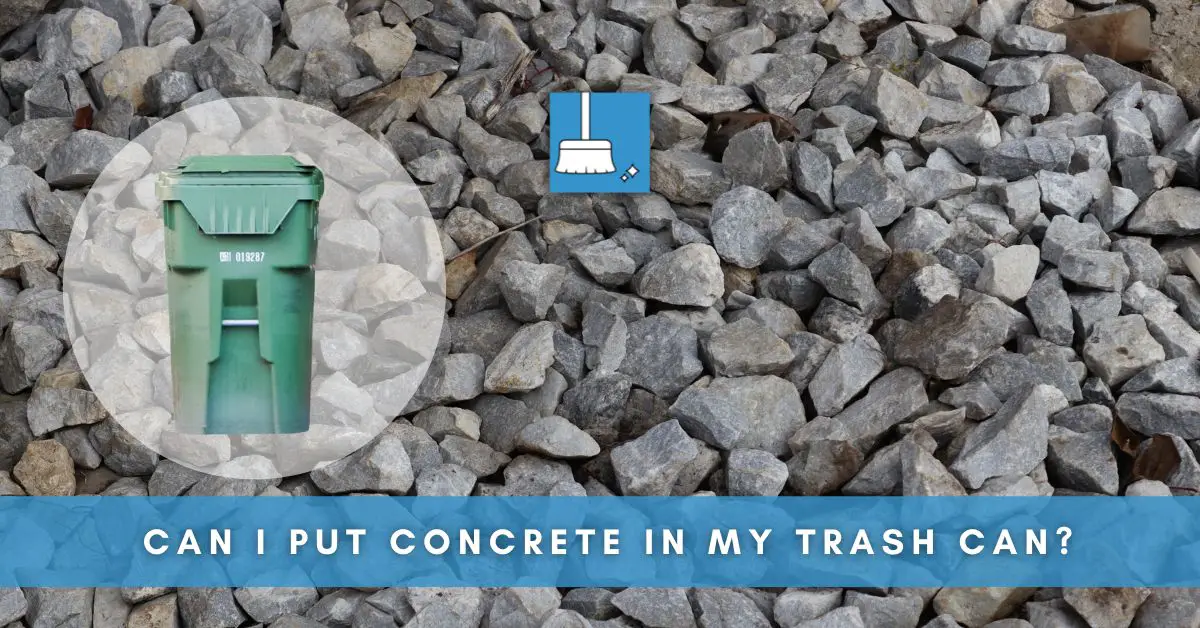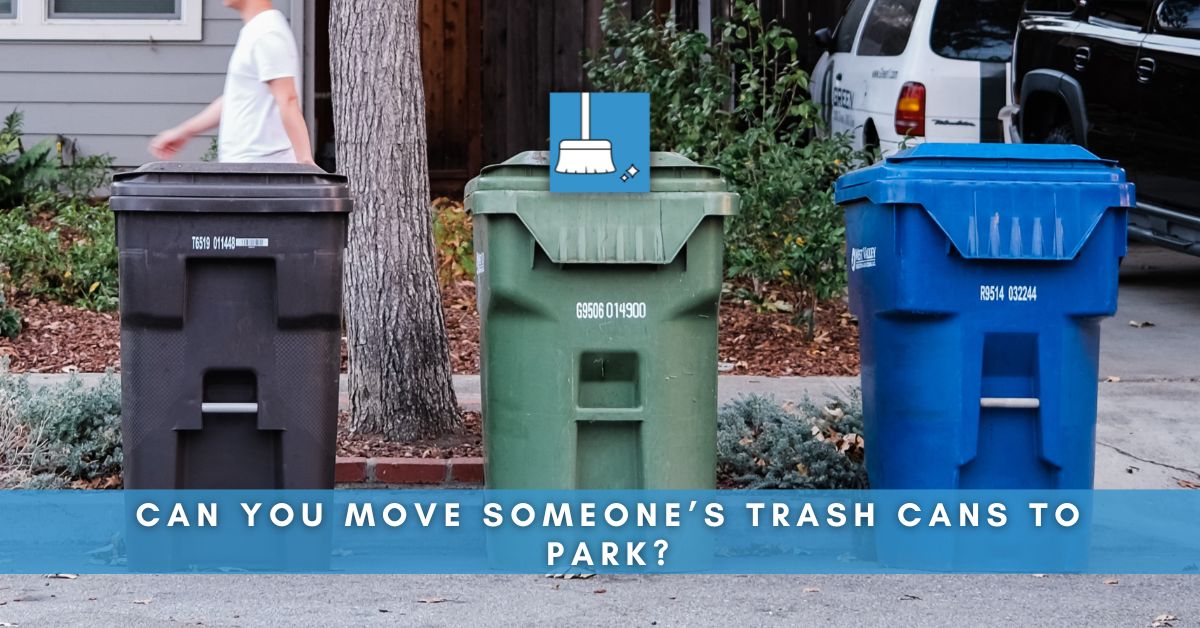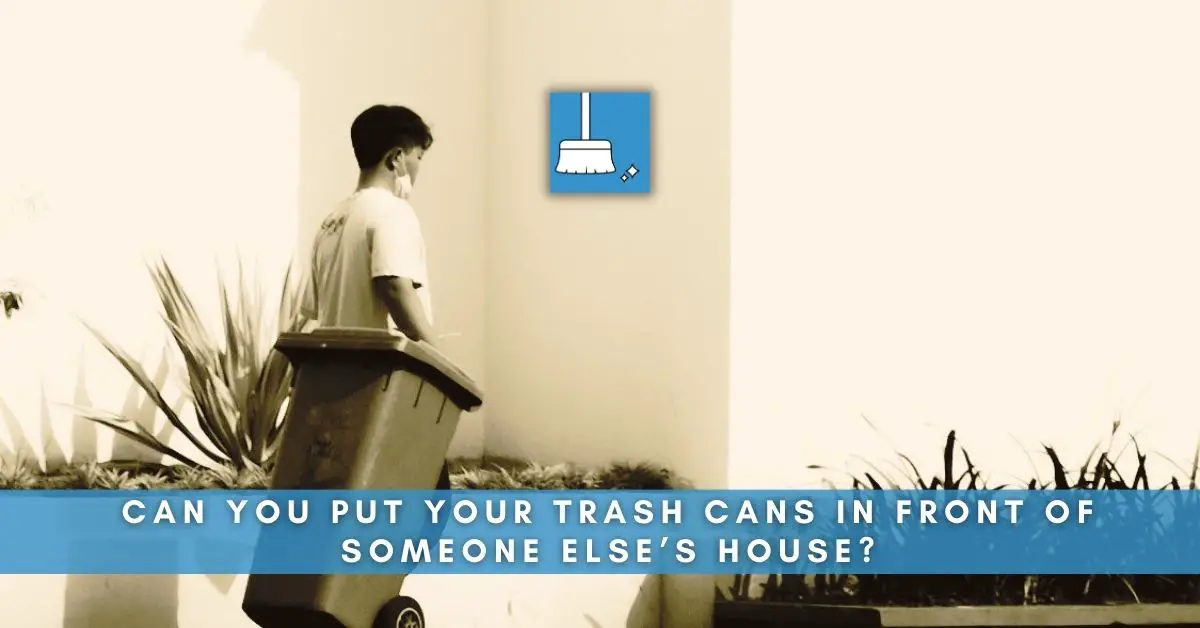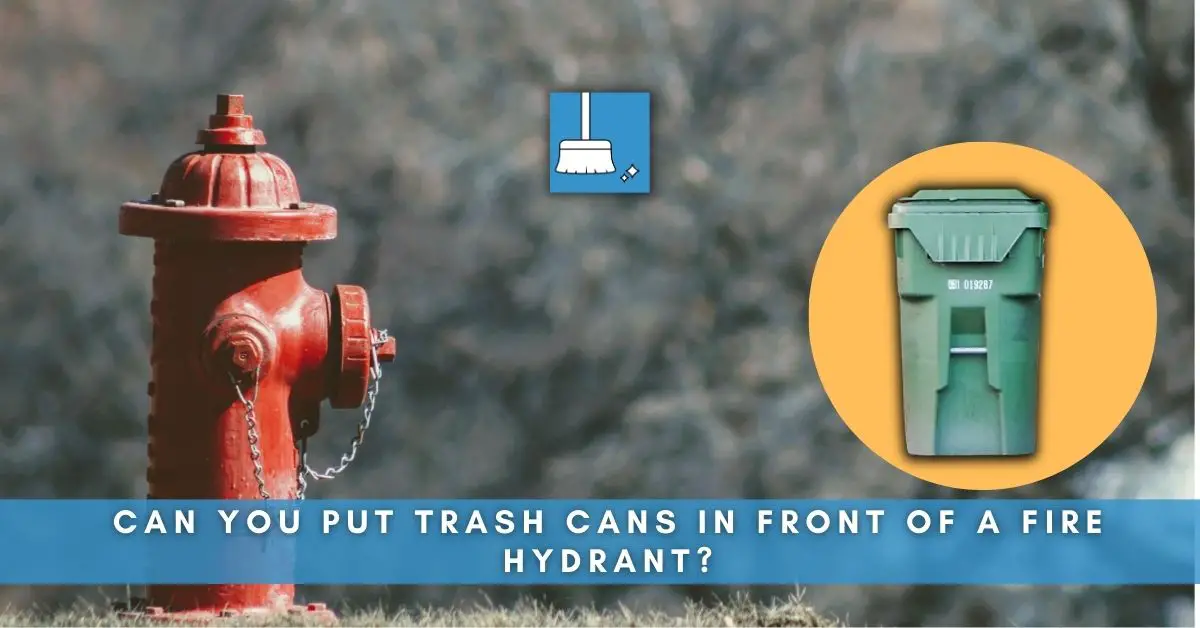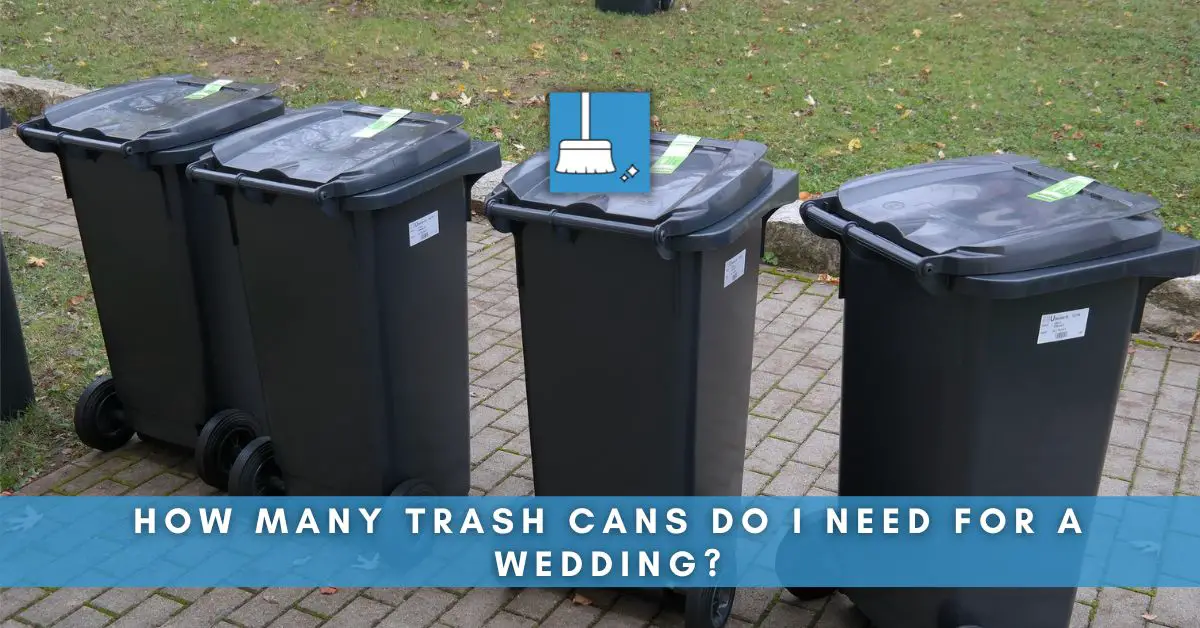Have you ever embarked on an ambitious DIY home project that ended up generating copious amounts of unwanted concrete debris? Or perhaps you’ve just stumbled upon a hidden pile of old concrete chunks in your backyard that have long been forgotten? Either way, you’re now facing a common homeowner conundrum: “Can I put concrete in the city trash can?”
Concrete Is Not Allowed in the Trash Can (Ban on U-Waste)
Certain materials are not allowed in your regular trash can and concrete is one such material that is strictly prohibited from being thrown away in your regular trash bin.
This ban on U-waste is meant to protect both the environment and the waste management facilities that handle the disposal of regular household trash.
1- Concrete, when mixed with other waste materials, can cause damage to trash bags, bins, and even the trucks that transport waste to the disposal facility.
2- Moreover, it can be harmful to the environment, as improper disposal of concrete can lead to soil, water, and air pollution.
For these reasons, it is crucial for individuals to follow proper waste disposal guidelines and ensure that concrete is not thrown away in their trash cans.
So, the next time you find yourself with unwanted concrete, you may want to consider alternative disposal methods instead.
Many local waste management facilities offer special services for the disposal of concrete and other hazardous waste, or you may want to consult with your city’s household hazardous waste program for information on special disposal events. [1]
Hazardous materials must be recycled: Proper disposal of concrete
Hazardous materials, such as concrete, must be disposed of responsibly to prevent harm to the environment and public health.
Concrete, when used for its intended purpose, is not considered hazardous waste. However, excess concrete materials from construction sites, mixer truck washouts, or residue found at a concrete plant, might fall under this category.
It is essential to recycle or safely dispose of these materials, rather than placing them in the trash.
Concrete can often be repurposed or reused in various applications, such as making blocks at a plant or recycling through a reclaimer. [2]
How to Dispose of Concrete Chunks?
Disposing of concrete chunks can be a challenge, but there are several ways to ensure responsible and eco-friendly disposal.
One option is to drop off the concrete at a construction and demolition (C&D) recycling center facility or building material retailer.
These facilities will crush and recycle the concrete into new concrete mix and aggregate, which can then be used for driveway paving, landscaping mulch, or material for new oceanic habitats.
Renting dumpsters of different sizes is also an option for those with larger debris. Dumpster rentals allow for easy disposal and efficient removal by experts, but it may come with a higher price tag.
Another option for disposing of concrete chunks is to take them to a landfill or transfer station. Contacting the facility beforehand is crucial to ensure they accept concrete.
This option requires multiple trips, but it’s a wallet-friendly option for those who prefer to dispose of the debris themselves.
Retailers may also accept unused concrete, but they usually require the individual to haul the concrete to their location.
Junk hauling companies and landscaping companies are also great options for disposing of leftover concrete, but they come with a cost or depend on the company’s discretion.
Individuals can also sell or give away their leftover concrete by advertising on social media, Craigslist, or by reaching out to local nonprofits and community groups.
When disposing of large amounts of concrete, it’s essential to be aware of recycling opportunities. Concrete chunks used as building stones, structural walls, and for road bases are typically the most commonly recycled materials.
Reusing Old Concrete Chunks!
Old concrete chunks may seem like useless material, but they can actually be repurposed in a number of ways.
One option is using them as fill for new concrete projects. This process not only adds bulk compressive strength and stability to the new project, but it also serves as a sustainable recycling solution.
It is simple to crush old concrete into smaller pieces and add it to the new mix.
Recycled concrete can also be used as a substitute for pavers or stones in a patio or walkway. It may require some cleaning and breaking apart, but the irregular shape of the chunks creates a unique and textured design.
By reusing old concrete, one can also save money on fees for dumping and buying new aggregate. Plus, it’s a environmentally friendly option that reduces landfill waste.

